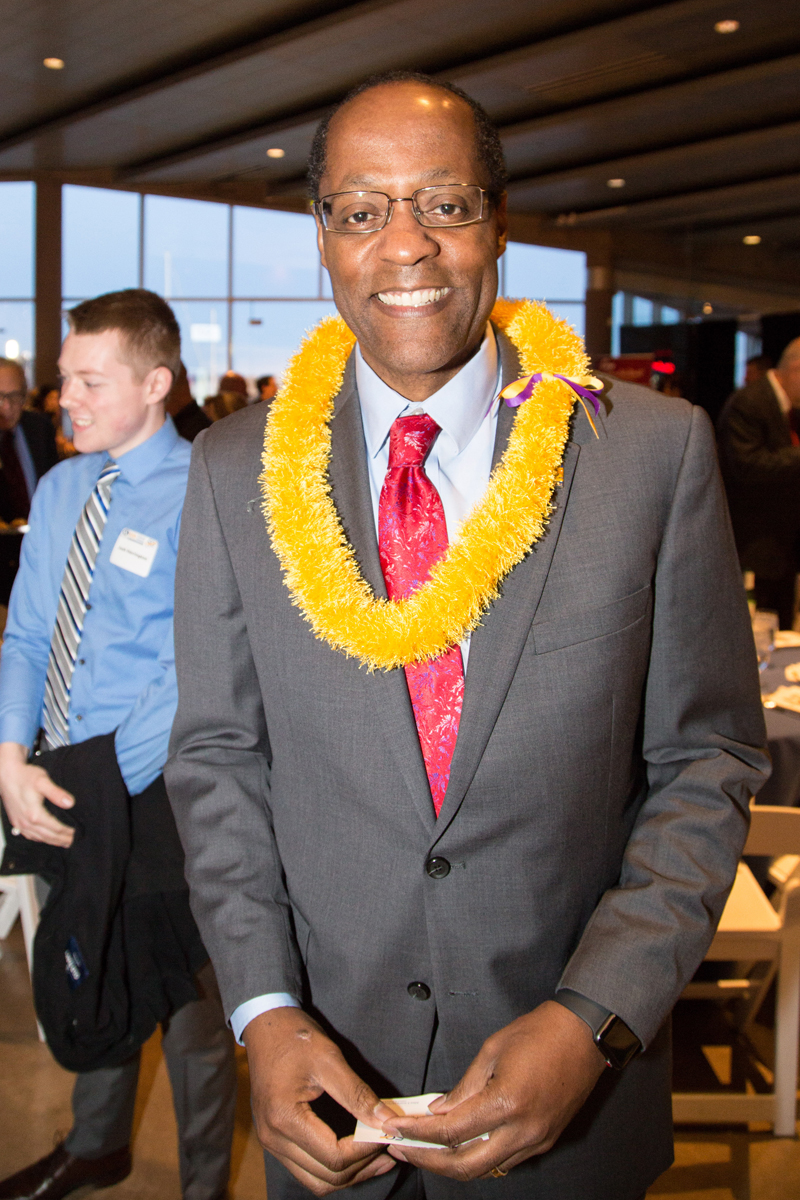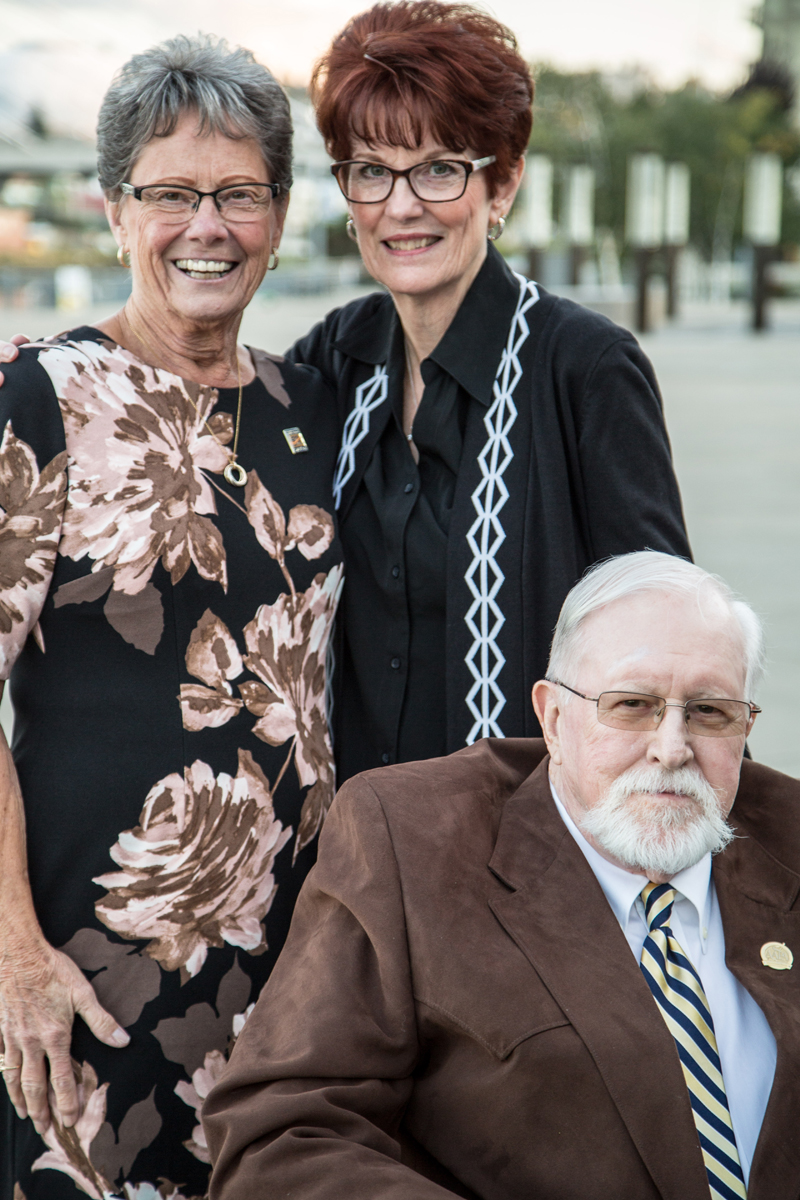On the evening of Saturday, October 5th, 2019, over 270 people turned out to celebrate the 50th Anniversary of the MEDEX Northwest Physician Assistant Program at Tacoma’s Museum of Glass.
Located along the Foss Waterway Seaport, the Tacoma Museum of Glass was an outstanding venue for the evening. Guests were free to walk the exhibits and visit the museums Hot Shot where resident glass artist Dan Friday demonstrated his skills. A Northwest-themed dinner was provided by caterer X-Group, owner of five Tacoma restaurants and breweries. The 5-member musical group Duende Libre played an eclectic set ranging from jazz standards to original Latin and traditional West African music.
But the evening was all about history.
Fifty years ago, the MEDEX program graduated its first group of physician assistants from the University of Washington as part of a federally funded demonstration project. At the time there was no certainty that the program would fly. But through the diligent efforts of founder Dr. Richard A. Smith and his colleagues, support was gathered within the Washington State Medical Association and inroads were made within the State legislature, all to address a problem that persists in healthcare today: a shortage of qualified medical providers.
That first class of fourteen military servicemen—all highly skilled medics or corpsmen—graduated in the fall of 1969. This training allowed them to enter into civilian-based healthcare, initially through carefully cultivated preceptors who in turn hired them fulltime. Some of these graduates of MEDEX Class 1 stayed in their positions for upwards of forty years.
From these uncertain beginnings was born the first new U.S. health profession in 100 years. And now, at the Golden Anniversary, MEDEX marks 50 years with 2,600 PAs that have passed through their program.
The evening’s program was led by three emcees—Tim Quigley, MPH, PA-C; Jennifer Erickson, MPH, PA-C and Tony Skaggs, MPAS, PA-C. Tim is the course chair for Behavioral Medicine at MEDEX and a Senior Lecturer, while Jennifer is the Site Director for the MEDEX Tacoma campus. Tony is the Associate Program Director of the Department of Physician Assistant Studies at the University of Texas/San Antonio. But many are familiar with Tony from his years as was Program Director of Clinical Affairs at MEDEX.
Terry Scott, MPA, PA-C, DFAAPA

The first to address the crowd at the 50th Anniversary event, MEDEX Program Director and Section Head Terry Scott, MPA, PA-C, DFAAPA marked the occasion by acknowledging the Duke University PA Program.
“There is only one program older than the MEDEX program in the country and that is Duke University, and we honor them,” he said.
“But I want to speak about the MEDEX program and our founder, Dr. Richard Smith, who, we all know, passed away in March of 2017. This man had a vision, a vision that a medical provider could be a medical extender, and expand care in some of our most needy communities. 50 years later, that dream still goes on. Every graduate of this program is in some sense multiplying Dr. Smith’s hands. And they will continue to do so until our 100th anniversary.”
PA Scott addressed some of the future goals of MEDEX, including expansion in Spokane and a proposed new campus in Kona, Hawaii.
“The program also continues to look at emerging opportunities to further the goal of providing care to underserved communities. Our regional partnership with Gonzaga University in Spokane, where MEDEX Spokane is located, is an example. A new multi-million-dollar building is proposed for UW Medicine. We are a part of that expansion, and look forward to its completion in 2022.”
Scott also revealed that MEDEX has been approached by leaders and elected officials in the state of Hawaii.
“Although it is a beautiful and bucolic setting in the state of Hawaii, if you look beyond the surface, there is a tremendous underserved population there,” he said. “This is a goal that we have taken on and will continue to explore as a possibility of our establishing a campus in the state of Hawaii. I think Dr. Smith would be proud.”
Dr. Paul James, Professor and Chair of the UW Department of Family Medicine
Also taking to the stage was Dr. Paul James, Professor and Chair of the UW Department of Family Medicine.
“What a wonderful evening to celebrate,” he said. “I’m so honored to be with you here tonight.”
Dr. James read from a letter by Dr. Paul Ramsey, the Dean of the medical school and CEO of UW Medicine, who could not be in attendance.
From Ramsey’s letter: “My thoughts are with you tonight with this important anniversary. The single mission of UW Medicine is to improve the health of the public. And MEDEX Northwest makes a truly substantial contribution to our advancing this mission of improving health for all people. As the second oldest PA program in the nation, MEDEX Northwest has led the nation in the development of curriculum and training for the PA workforce.”
“So, as you celebrate tonight the 50th Anniversary of the MEDEX Northwest program, and its growth as the largest civilian PA program in the country with four campus sites graduating an average of over 130 students per year, I’m very proud that MEDEX has trained over 2600 healthcare professionals. This is truly an extraordinary contribution.”
David Lawrence, MD, MEDEX Program Director, 1972-1977
Richard Smith often referred to himself as a pioneer. As such, he favored innovation and was prone to move on once he established a direction for others to set anchor.
In 1972, Dr. Smith handed the MEDEX reigns over to Dr. David Lawrence, who served as Program Director from 1972 to 1977. Dr. Lawrence had the “settler” instincts that were required to bring MEDEX to maturity.
“When I was part of this program, it was not a slam dunk,” reported Dr. Lawrence. He recalled attending a Washington State Medical Association gathering in 1972 or ’73.
A drunk doctor came up to Dr. Lawrence, started jabbing him in the chest, and said to him, ‘You know, there are two things that I hate more than anything in the world. One of them is PSROs, and the other is PAs!’
“I wiped the spittle off my face as he spun and walked off and I thought, ‘Boy we’ve got some work to do, here. This is not going to be an easy thing.’”
“There were questions about what PAs would do, about whether you’d be accepted by patients, whether or not the quality of the care you provide was going to be sufficient to meet the needs of the patients you attempted to serve,” said Dr. Lawrence. “These were real questions. It was a struggle. And the fact that you are celebrating 50 years of MEDEX Northwest is, in fact, the reason we are celebrating 50 years of this profession. And so, I recognize all of you who are PAs, who have given your lives, given your ethics, given your profession, and your compassion for the people you have served. It is for that reason that you are able to celebrate 50 years. Congratulations.”
Steve Turnipseed, PA-C, Graduate of MEDEX Seattle Class 1 from 1969
A member of that pioneering initial class, Steve Turnipseed brought his extensive military medical experience as a Special Forces Medic to bear as a student and eventual graduate of MEDEX Seattle Class 1. He was instrumental in proving to the docs, nurses, staff and Board Members alike in Seattle’s Group Health Cooperative that the pioneering PAs coming out of MEDEX were trained, capable and here to stay. He is a founding member of the AAPA Board of Directors, of the African American Caucus of the AAPA, and was instrumental in forming the AAPA’s Minority Affairs Committee. He remains a practicing clinician at two community health clinics in underserved areas of California.
“I want to talk about my class,” PA Turnipseed announced from the stage.
“We had a class of dynamic people who were instrumental in putting this together and making it work. I’m thinking of guys like Mark Patterson, Dean Meade, Bob Woodruff, Tom Coles, Mike Carraher, Ed Bivens, John Betz, and Paul Snyder. They were the cadre. We were together because we had the commitment and understanding of what MEDEX was to be. We were able to create a profession that is everlasting.”
“The real success behind what we were doing was the forethought, the imagination, the idea, the concept that Dr. Smith presented. He was very strong when talking about using the collaborative model. It was this model that led to very close relationships with the Washington State Medical Association, UW Medicine and Public Health.”
Steve went on to call out several individuals who were key to the key to the start of MEDEX in 1969.
“Dr. Ray Vath was our staff community psychiatrist, educator, mentor and an all-around great person who helped pull us through.”
Also, on staff was Dr. Bill Freeman, “an ace at all things MEDEX”.
Turnipseed singled out the great support staff: Lorna Smith, Carolyn Freeman and Sherry Seely. “It was like a family,” he said.
Ruth Ballweg, PA-C, Professor Emeritus, MEDEX Program Director, 1985-2014
Looking about the room, Ruth Ballweg, PA-C, began her address by stating the obvious. “The message today is, we’re all in this together. And this continues forever.”
She then asked the current MEDEX students to stand and be recognized. A little-known fact was that Ms. Ballweg sponsored three tables of students at the celebration, totaling 30 paid admissions.
Over 29 years, Ruth reigned as the MEDEX Northwest Program Director. As such, she knew most of the people in the room.
“If you wanted a dinner conversation, it could be how this career took us to more places than we could ever have imagined,” she said. “And how we were able to make such a big difference in people’s lives because of that concern, and that compassion. So, as I look at you, and I know many of those stories, I congratulate you.”
“Many of us who are PA leaders and PA educators feel that the next step we need to make to move our careers forward is for all of us to engage in philanthropy. It doesn’t have to be big— it could be 5 dollars, it could be 10 dollars, whatever— but to give back to the PA profession. “

“MEDEX, for example, has a number of scholarships with people’s names attached to them. For instance, we have an Emergency Fund for students who are up against it. Something has happened, and they can’t continue without that support. And then there’s the PA Foundation, and there’s my favorite outside of MEDEX, and that’s the PA History Society. So, I’m hoping that every year, you can think of some way to give back as an investment in what we’re doing.”
“Most of all, I am just so proud to be here with all of you, and to hear our stories, and to know that PAs are the change that we need in the healthcare world. Thanks for being here, thanks for being part of this, and who knows what other hell we can still stir up, right? Thank you.”
Over the course of the evening, two new proposed MEDEX funds were announced: The Terry Scott, PA-C Scholarship Fund and the John Betz, PA-C Scholarship Fund. Additional details on both funds will be forthcoming in the months ahead.
In the meantime, individuals are encouraged to donate to any of the 11 existing MEDEX student scholarship funds available on our UW Advancement Giving Page at www.AccelerateMed.org/MEDEX. Most MEDEX scholarships are awarded to students at the MEDEX Alumni Reception & Awards Ceremony in April of each year.
Howard Straker, EDD PA-C, MPH, Assistant Professor of Physician Assistant Studies, George Washington University.
in 1993 Howard Straker was a faculty member at the Harlem PA Program. At that time, he was convinced by the Grace Landel to join her and others in Sitka, Alaska, where they helped to launch MEDEX’s first satellite program.
As Howard tells it, “Grace and I shared a house together, and people in Sitka just didn’t know what kind of people we were. People would stop by and Grace would be out chopping firewood and I’d be inside baking cookies.”
“I left my community in New York City to come to MEDEX because truly MEDEX and I had the same mission. We wanted to train people to serve the underserved, to extend care to those who were in need and didn’t have it.”
In Sitka Howard quickly learned the similarities between inner-city and rural communities.
“The similarities lie in the wonderful people who live there and what we today call the social determinants of health. Things like education, transportation, economics, etc. From MEDEX, I continued learning how we can teach people to be clinicians, to provide competent quality care, and incorporate the patient’s community and social background into clinical practice. I learned you could take your MEDEX training with you, no matter what specialty or location you go to. MEDEX graduates are prepared to take care of the next underserved patient who walks through the door.”
“Dr. Martin Luther King once said, of all forms of inequality, injustice in health is the most shocking and inhumane. The contributions of Dr. Richard Smith, the contributions of the MEDEX program, form a legacy that helps address this injustice. Whether the disparities are those of race, gender, sexual orientation, age, economics or geography, we must work to eliminate them. Sometimes this means we must challenge the status quo.”
“This means we challenge the way things are in order to facilitate providing quality care for our patients and our communities. This means sometimes, we have to provide leadership in our units, leadership in our teams, leadership on our facilities, our institutions and organizations and our communities to make the changes that healthcare requires in this country. MEDEX has been and will continue to be such a leader. MEDEX has and will continue to nurture such leaders.”
Howard Straker has served as secretary of the Physician Assistant Education Association and is the president-elect of PAEA. He will assume this role in 2020.
David Acosta, MD, Chief Diversity and Inclusion Officer, Association of American Medical Colleges in Washington, DC
Dr. David Acosta was a MEDEX faculty member from 2003 to 2013. Most notably, he served on the organization’s admissions committee and as a Latino clinical provider.
“In preparing for this evening, I was looking over some of the MEDEX Admissions numbers. I really believe that MEDEX Northwest is an exemplary model for all health professions. We need to wake up, pay attention and to see what this program is doing as best practices so that the rest of us can follow that model as well.”
Dr. Acosta continues: “Being here tonight, there is no question in my mind why this program stands out so much among the rest of the PA programs in the United States. I think the University of Washington should be extremely proud of what this program has accomplished over its 50 years. As I travel the country, I’m never surprised to hear how people know about the UW MEDEX Northwest PA program.”
“I’d be remiss if I didn’t mention the other critical components of much of your program. The leaders who had the dream and continue to have this dream with vision and passion and dedication to establish MEDEX Northwest, and disseminate its success not only in the Pacific Northwest but globally as well. I’d be remiss not to mention the faculty who, with their undying efforts, their commitment and perseverance, sustain the quality of the program’s successes year after year after year. And lastly to the graduates, many of whom are here tonight, who remain true to the mission and the values of this program, providing quality and culturally competent care to those communities in need and contributing significantly to society’s healthcare needs. You are celebrated not just here, but I believe you are celebrated nationally. You are recognized for the great achievement of being the best of the best. Thank you for that.”
Theresa Schimmels, PA-C, BCHS, DFAAPA, Commissioner for the Washington Medical Commission
A graduate of MEDEX Spokane Class 1, Theresa Schimmels, is another MEDEX pioneer. As a MEDEX student, Theresa was class president, she was the recipient upon graduation of the coveted John B. Coombs Leadership Award, and she was given the Future of MEDEX Award as well.
After graduation 20 years ago, Theresa worked in Family Practice and did some part-time instruction with MEDEX Spokane. In time she found her disciplinary home in dermatology, which she has practiced for the last 16 years, currently with the Mann-Grandstaff VA Medical Center in Spokane. She continues to precept for MEDEX students in their clinical rotations.
“It’s an honor to be asked to speak and represent Eastern Washington,” Theresa said to the audience.
“In 1996, a decision was made to open a campus in Spokane Washington. The premise behind that was this: if you build it, they will come. But not only will they come, they will stay.”
“And so, what happened was that people came from Montana, Idaho and, at that time, Alaska. We trained them in what was considered to be a rural area, even though Spokane is the second biggest city in the state of Washington. Then they would go back out and practice in their rural communities. That really happened, and it still continues to happen to this day.”
“About 600 graduates from the total 2600 graduates have come from the Spokane program, so thank you for that. It’s really an honor to come from that first Spokane class.”
“I’m going to finish with a quote from a little book called Keep Calm and Carry On. ‘We live in challenging times. Worries and stresses are tough enough, but we only make then worse when we take them to heart. Some fears are real, some imagined. But no fear is too large to laugh at, or at last smack upside the head.’ As John Cabot Zinn has written, ‘You can’t stop the waves, but you can learn to surf.’”
In Memoriam Tribute
MEDEX Northwest is an extended family. As we celebrate our successes, we also grieve our losses. We are a relatively young profession, still building our traditions for honoring graduates as they pass. Over the space of fifty years the profession the lost many valuable individuals. One of the most moving parts of the evening was an In Memoriam Video Tribute. In images and music, the brief video memorialized a number of MEDEX PAs who passed away too soon. After the film was shown the emcees asked members of the audience to stand and name those individuals who did not make it into the final presentation.
MEDEX Champion Awards
With this event, MEDEX initiated a new recognition called the MEDEX Champion Award. Its recipients are notable for the important contributions they have brought to this organization. Their vitality, vision, and commitment have left MEDEX and the entire profession in a far better place. Click here to see the full list of awardees and additional photos.

